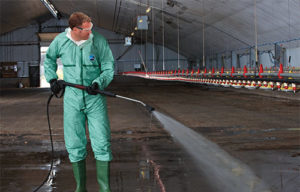The summer weather is hot, the temperature is too high for people to accept, the chicken is more sensitive to temperature, so in the summer to raise chicken, then we must pay attention to heatstroke and cool down, to introduce the ten cooling measures for chicken farms, as follows
1. Chickens should be kept in the hot season, and farmers should minimize the stocking density in the chicken battery cages.
2. Raise the roof of the house to enhance the insulation capacity and reduce the impact of solar radiation on the house.
3. You can consider laying a layer of shade on the outside of the chicken house, which can also play a good role in reducing direct sunlight.
4. To change the water for the chickens, it is necessary to ensure that the water in the chickens is cool.

5. Chicken farmers can add some oils, amino acids and the like to the feed of the chickens, which can reduce the heat generation of the chicken population and improve the resistance of the chickens.
6. Adding VC200PPm to chicken feed can improve the ability of chickens to resist heat stress.
7. Be careful to use anti-heating and cooling drugs to prevent alkaline poisoning in the flock.
8. Feed should be eaten with less food and only refreshing drink at noon.
9. Pay attention to weather forecast and weather changes, and take early high temperature precautions.
10. You can consider adding a summer heat and other heatstroke prevention drugs.
Notes on raising chickens in summer:
During heat stress, the breathing rate of the chicken is increased. With the increase of the temperature, the respiratory rate can be gradually increased from 20 times/min to 100 times/min. Due to excessive breathing, excessive CO2 emission in the body leads to a decrease in the concentration of blood H+ and HCO3-, an increase in pH, and symptoms of respiratory alkalosis. This is an important reason for the increased mortality of soft-shelled eggs, broken shell eggs and broilers in laying hens.
The chicken house continues to have high temperature, abdominal muscle fatigue, slow breathing rate, and accumulation of CO2 in the body, resulting in an increase in blood H+ and HCO3- concentrations, a decrease in pH, and respiratory acidosis. This is caused by muscle weakness, paralysis, more difficult heat dissipation, and a sharp increase in death.